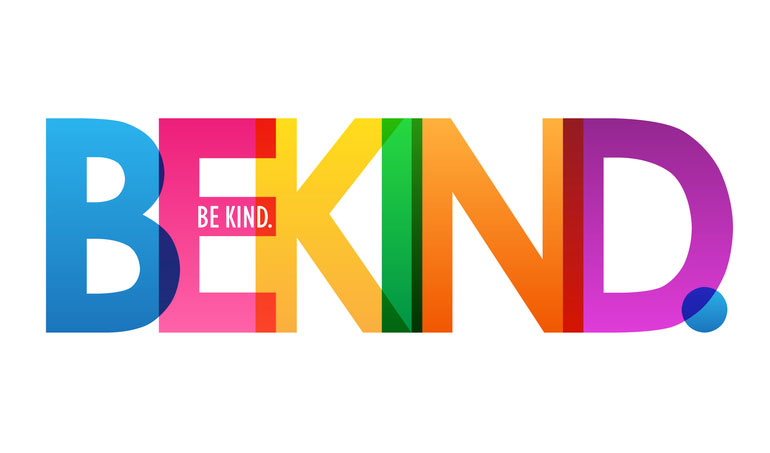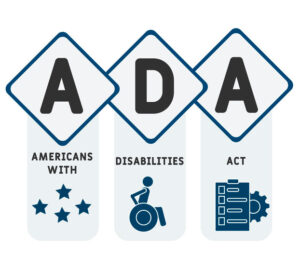The Issue of Bullying Students with Disabilities Hits Particularly Close to Home for Me
8/16/2021

There comes a time in the life of every person when we have to make a decision: accept what is wrong or change what is wrong. If we choose the latter, we may choose to stand alone in our efforts. If we choose the former, we might just be contributing to the perpetuation of a problem.
When it comes to bullying students with special needs, inaction isn't an option for me. I simply won't stand for it…mostly because I'm so tired of seeing our society treat people with disabilities so unfairly.
Taking an Honest Look at the Culture is the Only Way We Can Change It
 Our country has spent years poking fun of and perpetuating stereotypes of various subgroups in our culture. Recent events make it clear that people have had enough. Discussions, debates, demonstrations and civil unrest, cultural outreach efforts, media involvement, and so many other avenues have made it clear that subjugating people for whatever reason is no longer acceptable and won't be tolerated (to the female Olympians refusing to wear bikinis at the beach volleyball competition, you go!).
Our country has spent years poking fun of and perpetuating stereotypes of various subgroups in our culture. Recent events make it clear that people have had enough. Discussions, debates, demonstrations and civil unrest, cultural outreach efforts, media involvement, and so many other avenues have made it clear that subjugating people for whatever reason is no longer acceptable and won't be tolerated (to the female Olympians refusing to wear bikinis at the beach volleyball competition, you go!).
But it still seems like people with disabilities have been left out of the conversation.
I've been in the classroom since the original grunge movement of the 1990's. I am, in teacher years, older than dirt. When I was a student, students with disabilities were in classrooms either off campus or in some remote part of the building where there was no chance of matriculating with neuro-typical students. No chance of making friends, eating lunch together with siblings or neighborhood friends. Certainly, our peers with differing abilities had no chance at the fun memory-making programs that so many of us participated in, like marching band, cheerleading, choir, shop class, and yearbook staff membership. Students with disabilities were different and as such, were not mainstreamed into general education classes.
Findin' the Beat So the Drummer Can March In the Right Direction
 In 1974, President Gerald Ford signed into law the Education for All Handicapped Children Act, PL-94-142. In signing this bill into law, students who had been denied access to education were placed into academic settings and given opportunities never before available to them.
In 1974, President Gerald Ford signed into law the Education for All Handicapped Children Act, PL-94-142. In signing this bill into law, students who had been denied access to education were placed into academic settings and given opportunities never before available to them.
In 1970, only one in five students was receiving a public education and in many states, if a student had a disability such as blindness, hearing impairment, or emotional impairment, a traditional public school education was often unattainable.
A vastly different number, the 2018-2019 school year saw over seven million children with special needs receiving education and related services in their neighborhood school setting or placement as agreed to by the student (when appropriate) and their Individual Education Plan Team.
That said, now that students are receiving (in the majority of instances) the individual education plans as required by law, I would posit that nearly 50 years later, we still see incredible social discrepancies that we're still doing little more than paying lip-service to. Let's see what the data says.
Special Education Students As Targets of Bullying
 The 1973 Rehabilitation Act, Section 504 and 1990's Americans With Disabilities Act of 1990 both state schools must address bullying and harassment of students with special needs.
The 1973 Rehabilitation Act, Section 504 and 1990's Americans With Disabilities Act of 1990 both state schools must address bullying and harassment of students with special needs.
So far, only ten documented studies on the topic of bullying people with disabilities have been done. Based on the information in those studies, the risk for people with disabilities is three times what it is for neuro-typical kids. This is a problem!
The problem is rooted in one central place: mindset.
"Those people don't have feelings."
"Look at how they walk!"
"Hey, why are you so dumb?"
Where have I heard these statements? At the very place where ALL children are supposed to feel safe and valued: at school. Surely the statements made by
kids. Sorry to disappoint you. Adults have uttered every one of those phrases. Adults. Adults who have gone to school to be teachers, many of whom have practiced their craft for decades.
So what can be done to change the mindsets of those who continue to work under the antiquated notion that only certain segments of the population truly have worth…whose opinions, feelings, and emotions actually DO matter?
As an Educator, we know change starts in the home and as I've come to learn over the years, for many students, school really is the place they value as much as, or more than, home. It is for us to address. It is the mantle for which we must take ownership. If we don't, we're just another piece of Problem Pie.
When the Ugly Rolls Up In Front of Your Own Home
 So there's a story behind what prompted me to write this, and as you might guess, it wasn't exactly a happy one…
So there's a story behind what prompted me to write this, and as you might guess, it wasn't exactly a happy one…
My 30 year old stepson attends a day program for adults with disabilities. Ranging in age from 18 to 70+, people from all over our county ride a bus to and from the school five days per week. On a particular day early this summer, the bus carrying home our guy allegedly hit and broke off the mirror of a truck as the bus rolled by. Each bus is equipped with mirrors which extend out further than average. These extended mirrors are an added safety precaution and are approved by the state agency responsible for such things.
The driver of the allegedly injured vehicle came speeding down our quiet neighborhood street. From my office window, which faces the street,
I could hear the bus roll up in front of our home and within seconds, I heard a vehicle door slam and a male voice yelling loudly at someone. The bus was out of my line of vision but I'm familiar enough with how it sounds to know it was there.
I dashed out the already-open garage door to see what all the drama was about.
The driver whose vehicle had allegedly been hit was pulled at an angle in front of the bus so as to block the bus driver from going forward. The driver was yelling at the driver, obviously enraged. The police had arrived soon after I got outside. The officer clearly knew the driver of the allegedly damaged vehicle as the officer greeted him by first name. I approached the driver of the bus. She was shaking like a leaf but had done everything right-she refused to let our guy off the bus and she kept the window shut and doors locked. All the while, she was being verbally assaulted by the other driver as he continued to scream at her through the driver's side window.
My husband took our guy off the bus. Our guy was sobbing and kept saying, "I'm so scared! I'm so scared!" Well yeah, with a raging person screaming into your bus, I'd be pretty scared, too! My husband took him into the house where his afternoon caregiver was there to engage him, discuss it briefly, and distract him. My husband came back out and as I watched the officer interact with both drivers, I was able to step aside and check on the clients who remained on the bus, waiting to get home. We chatted about the "scary thing" then discussed superheroes, always a popular topic.
Not once did the officer attempt to engage with the students. Not once did I hear him ask if they were okay. Not once did he step to the bus and try to connect with the remaining clients. Not once did he inquire about our guy's well-being. Not. Once.
What made it worse for me? When my husband asked the officer what was going to be done about the verbal assault and he was non-committal. What really hurt my heart, ticked off my man, and was corroborated by body cam footage, the officer was heard to say, "His feelings don't matter." Uh, wait. Let me clarify that: when he referenced "his," the officer meant Our Guy. The one who was terrified by the verbally assaultive person pounding on their bus-yeah, that Our Guy.
His feelings didn't matter? Well, that's incorrect. Everyone's feelings matter. I think we all learned that in Kindergarten.
Stop Talking About the Problem and Start Solving It
 How can we effectively and realistically address the issue of educating not only teachers but also first responders within our community? I mean, dang. If their body cam footage is catching it, clearly it's a for real issue.
How can we effectively and realistically address the issue of educating not only teachers but also first responders within our community? I mean, dang. If their body cam footage is catching it, clearly it's a for real issue.
INSERTING THE DISCLAIMER: No! I do NOT believe it's ALL first responders! I know there are so many GREAT and INFORMED people out there! My husband is one of them!
- School leadership needs to meet with their building teams to discuss this issue. The Dear Colleague letter is a great place to identify necessary talking points.
- If the harassment and bullying are not dealt with, the question of provision of FAPE (free appropriate public education) comes into question.
- Parents have the right to exhaust all appropriate means along the way in order to resolve the dispute. If they do not believe action is being taken by the school or community organization, they can then seek assistance from the Office of Civil Rights.
- Teachers' licenses can be pulled or, at the very least, censured for state ethics violations.
- If the harassment and bullying are not dealt with, the question of provision of FAPE (free appropriate public education) comes into question.
- Offer to be a "What If" or "How To" coach for others who struggle but who are open to change. Open an honest, kind but concise, and real dialog with them.
- Provide in-service trainings for your colleagues. Insist the administration requires team members attend. Free in-services with excellent content are hard to find. You are a valuable asset.
- Reach out to the community's first responders. Offer the same in-service for them, tailored to their typical and potential interactions. Autistic students don't "look" disabled…nor do they always interact well with others. A special education teacher is perfectly suited to provide this training, and if you offer it for free, you know they'll take you up on it. Same deal, though, as with your teaching team: everyone needs to be in attendance.
- Inform them that Title 2 impacts their job as much as FAPE impacts the teacher's job.
- With a positive approach, drive home the idea that everyone in our community deserves respectful treatment. Moreover, they deserve compassionate treatment.
- We need to demonstrate gratitude to one another. Our jobs are challenging. Being a person with disabilities: well beyond the levels of challenge we face at work. Ever try reading papers all day when you have a significant vision issue? Taxing. Ever watched a hearing-impaired kid communicate using sign language? They're tired by day's end. A person in a wheelchair rolling around a city where there aren't always sidewalk ramps? It takes a toll!
- We must teach neuro-typical people to be kind and to demonstrate compassion. Kindness is easy but often, people are afraid of what they don't understand. Here's a quick list of ways to approach a person with a disability.
- Help community and school team members to understand that they can help a person/student develop self-advocacy When people share their knowledge with others, everyone benefits.
- See what others are doing. There are so many agencies, groups, and people taking the need for compassionate education and launching unique, relevant learning opportunities for kids and adults.
- Organizations like To Be Like Me can be a great field trip destination for classrooms in the Dallas-Fort Worth area. Look for similar organizations in your area.
- Work with agencies that address the needs of the disability community. Partner with them to promote social awareness by co-sponsoring an event as an individual, class, or even as a school district.
- Participate in fundraisers and other awareness campaigns.
- Ask school leadership to support you by placing neuro-typical kids in your classroom for a period of time-could be daily or weekly-for an hour or so…whatever works. I'm not talking about the eager beaver resume-builder-type kids. I'm talking about the kids who need to see life from a different perspective. The kids who are, at their core, good kids but whose edges may be rough. Maybe they come from homes where different is viewed as bad. What a great intervention to breaking a cycle of ignorance!
Get the Momentum Going, and Do Something Great Within Your Community
 As for our guy, he appears to be fine. It took him a few days to feel comfortable with cars parking on the street near our home and he edged closer to his dad when we were out in public, especially when loud men were adjacent and as with all things, time heals most (not all) wounds.
As for our guy, he appears to be fine. It took him a few days to feel comfortable with cars parking on the street near our home and he edged closer to his dad when we were out in public, especially when loud men were adjacent and as with all things, time heals most (not all) wounds.
But seriously, people, we have got to teach and encourage grace and kindness from everyone in our communities. Am I suggesting that everybody out there has issues? Uh, no. Am I suggesting there are imperceptive people out there who still hold very antiquated ideas about people who are neuro atypical? You might be surprised by the answer. They're out there in droves.
As my Granny used to say, "Sometimes ya gotta stand for something otherwise you'll stand for nothing." I think she had a lot in common with baseball great Yogi Berra and I believe, with all my heart, she was right. Take a stand and be an advocate for people with differing abilities. Show grace-it looks good on everyone.
- Dear Novice Teacher:An Open Letter About What You Really Need To Know For a Successful Teaching Career - November 9, 2021
- I Never Forgot What It Felt Like to Struggle in School… So I Decided to Become the Teacher I Always Wished I Had - October 8, 2021
- The Issue of Bullying Students with Disabilities Hits Particularly Close to Home for Me - August 16, 2021









